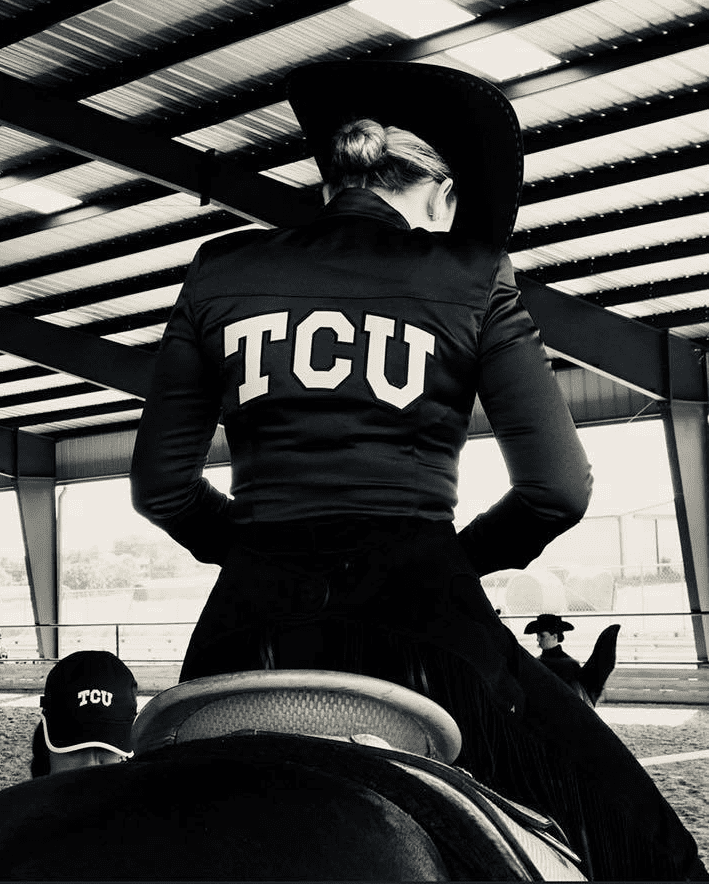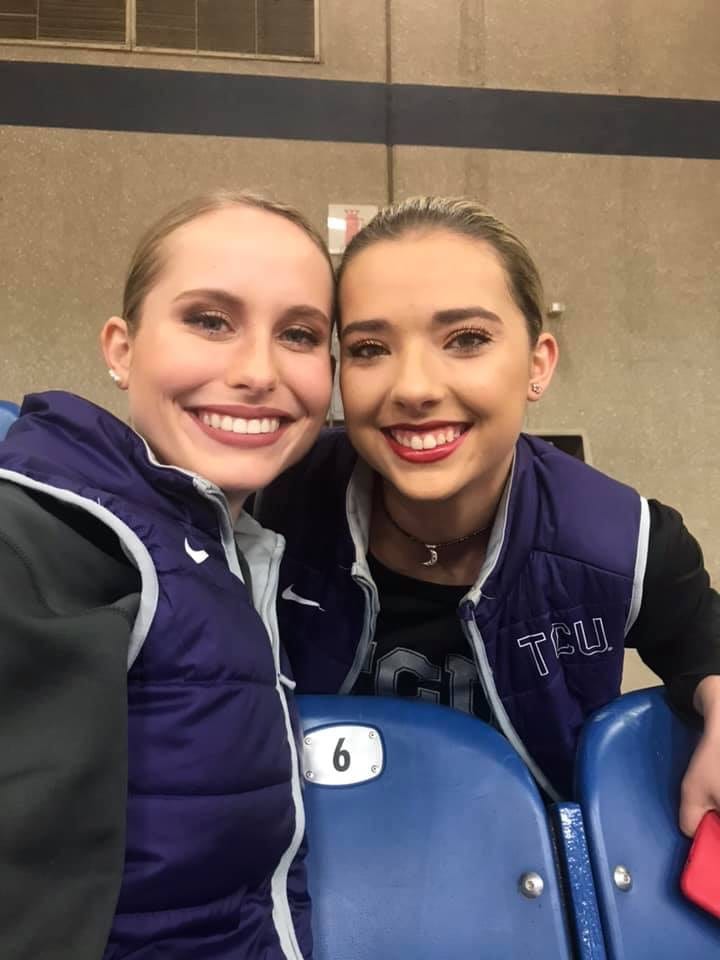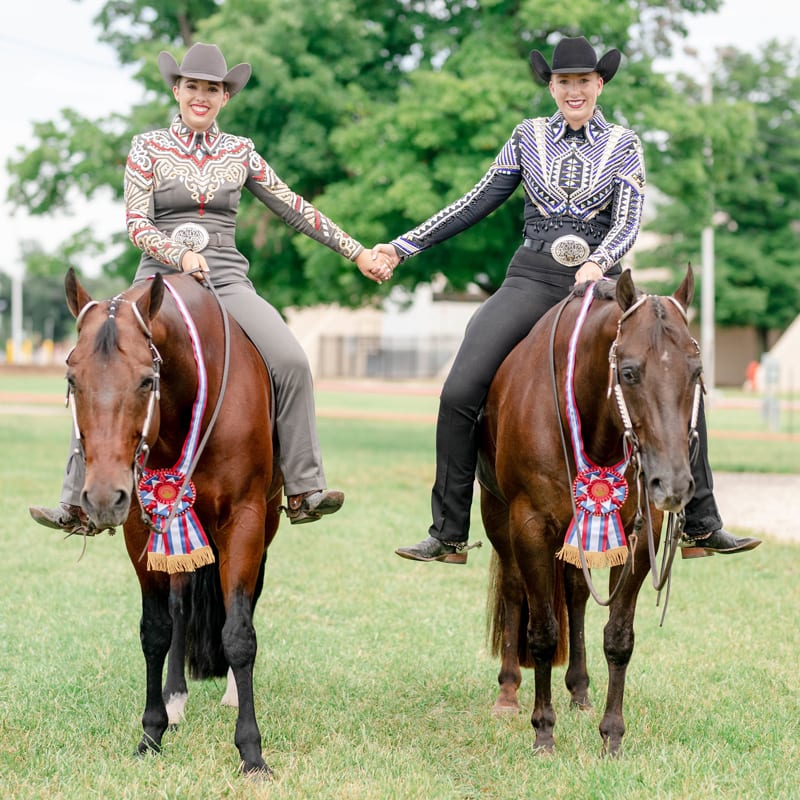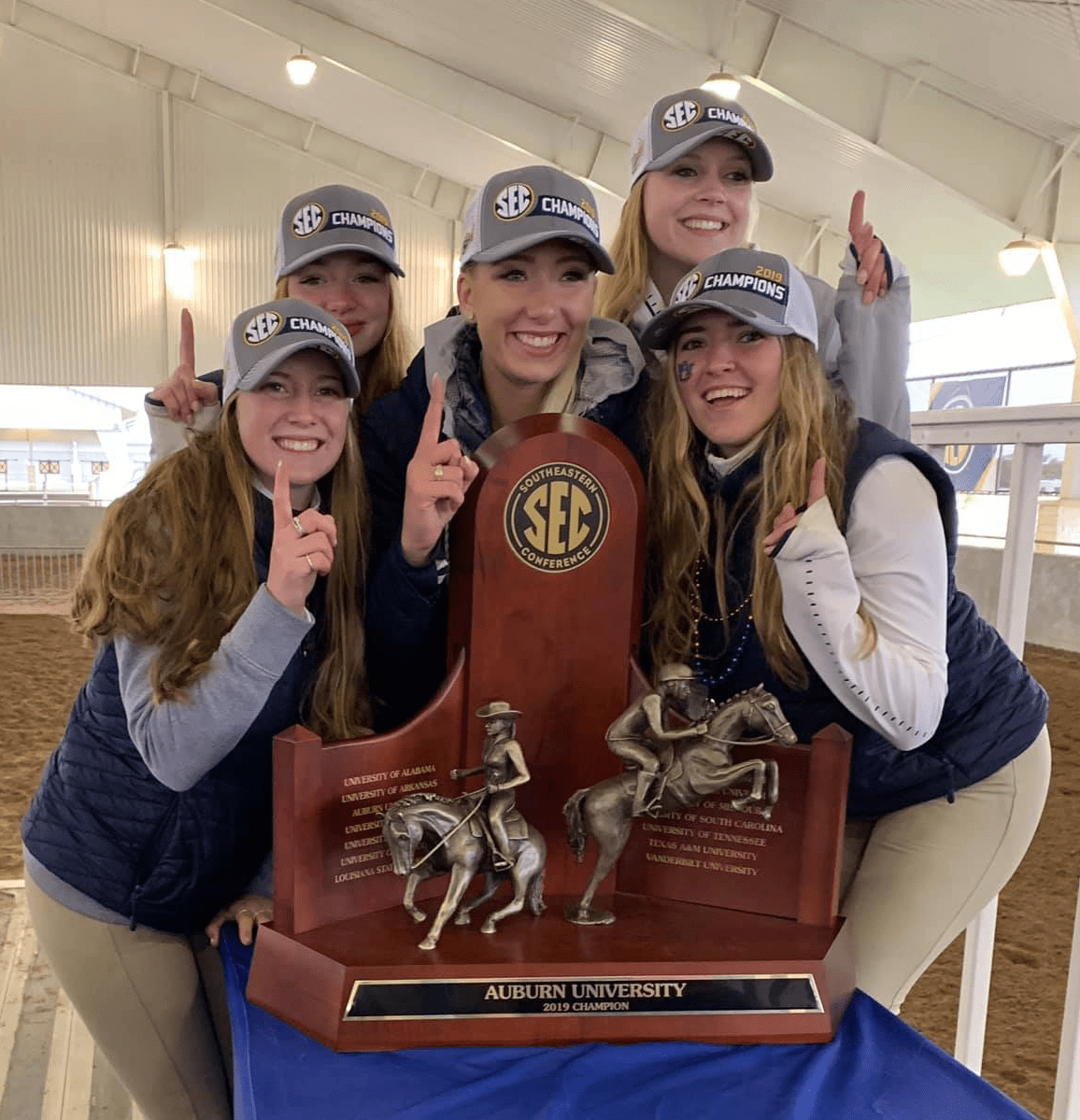In recent years, collegiate athletics have witnessed the rise of equestrian teams at numerous universities around the nation. Known as the National Collegiate Equestrian Association (NCEA), these equestrian teams provide opportunities for college-bound female athletes to pursue their sport at the highest level.
The competitions are conducted in a head-to-head format, with five riders from each team being randomly assigned a horse to present in horsemanship, reining, equitation on the flat or equitation over fences. Most competitors have an extensive background showing their horses on a large stage, with many having achieved success in multiple associations.
However, in contrast to the student-athletes of sports such as football and basketball, equestrians have the opportunity to continue competing outside of the college catch-riding format.
GoHorseShow had a chance to talk to two NCEA athletes, both AQHYA World Champions, who took on the challenge of balancing a collegiate career with breed circuit success. TCU freshman Natalia Devencenty and Auburn University freshman Emma Brown offer their unique perspectives on how they manage the intensity of Division I athletics and American Quarter Horse Association shows simultaneously.
Adaptability is Key
Devencenty stressed the importance of a flexible character. “Be ready to go with the flow, you know, because it’s going to be different no matter where you go or where you come from,” she said. She expanded on this idea, saying that “not being able to go to all the shows you want to go to in the industry,” due to the intensity of the college schedule, has been one of the largest adjustments for her. Though it was a challenge, Devencenty found that being able to “just kind of roll with it,” was a significant factor in excelling in her transition to NCEA.
Recognizing the Benefits
 The NCEA catch riding format is not one that many youth are familiar or very comfortable with, making it that much more testing, and sometimes even frustrating for new athletes. However, both Brown and Devencenty find that their experience with competing on random horses, though it is limited, has greatly benefited their abilities to show their own horses.
The NCEA catch riding format is not one that many youth are familiar or very comfortable with, making it that much more testing, and sometimes even frustrating for new athletes. However, both Brown and Devencenty find that their experience with competing on random horses, though it is limited, has greatly benefited their abilities to show their own horses.
Brown (pictured far left) didn’t hesitate to acknowledge this idea, saying that it “most definitely” helped her develop her skills with her horse. “I think the school horses can be a lot more challenging than your horses at home most of the time, especially for me. When my horse at home acts up, I don’t react the way I used to react because it’s minor compared to other things I’ve experienced so far.”
Similarly, Devencenty has been able to apply her newfound knowledge to her young horse, Moonlite Madnez. She says that the horses she often finds herself riding at college have “weird quirks,” but that, because of the sometimes unpredictable nature of NCEA horses, she has picked up, “some more tools to either ignore it or handle the situation better,” when the inexperience of her young partner surfaces.
Your Parents are Your Biggest Fans
 While it is a common tendency for teens to distance themselves from their parents as they become more independent, Brown and Devencenty do not hesitate to ask them for help. Devencenty (pictured far right) said that while distance keeps her parents from “being super hands-on,” they are never more than a phone call away. “If I’m ever having a tough day or having a problem that I need their help with, or need to talk to someone on the phone, they’re always there to be supportive all the time. They come down to the meets and cheer me on as much as they can as well, so they’re super supportive.”
While it is a common tendency for teens to distance themselves from their parents as they become more independent, Brown and Devencenty do not hesitate to ask them for help. Devencenty (pictured far right) said that while distance keeps her parents from “being super hands-on,” they are never more than a phone call away. “If I’m ever having a tough day or having a problem that I need their help with, or need to talk to someone on the phone, they’re always there to be supportive all the time. They come down to the meets and cheer me on as much as they can as well, so they’re super supportive.”
“They didn’t care about money or anything like that, they wanted me to be happy in the school that I’m at,” Brown told us. She stressed that her parents were very enthusiastic throughout the recruiting process, and considers herself quite lucky that they can make trips down to Auburn for every meet. “They love to come and support,” she finished.
Horse Trainers are a Huge Help
Brown told us that the help of her trainers at home is vital. “I wouldn’t have been able to go home and show at the Congress or just fly down during Christmas break and show at the Florida show without them keeping my horse prepared.” She highly recommends the help of a trainer throughout the recruiting and competing processes.
“You have to remember that, in reality, the team comes first and school comes first,” said Brown. “You’re here to get a degree, and you’re here to be a college athlete.”
Devencenty expressed a similar attitude towards the overall balance of collegiate and breed circuit competition, saying “School comes first, making sure I get stuff done on time, and I’m not falling behind, I think it is a big factor.”
Equestrian is a sport like no other that offers its athletes incredible opportunities. While showing NCEA and breed circuits can get overwhelming, nobody wants to see you fail. The key to success is adaptability, receptiveness and a genuine love for what you’re doing.
About the Author: Kassidy Lammers is a Junior in high school from Ohio. She has been showing Quarter Horses for six years and has been a member of the Interscholastic Equestrian Association for five years. She hopes to continue her equestrian career at the collegiate level.









